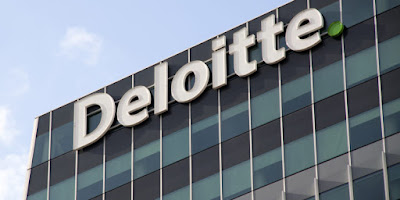Deloitte Breaks Cover in an Attempt to Reduce Reform
It was only earlier in the month that we looked at the comments
made by the new Head of the Financial Reporting Council (FRC) regarding the
audit oligopoly and the potential of reforms heading its way. In today’s
business press, it is being reported that Deloitte – the second-largest British
accounting firm – has altered its policies so that now Non-Executive Directors
have the final say regarding the level of pay and bonuses that its auditors can
obtain. In this short post we will look at these plans and assess the validity
of the move with regards to the potential of regulatory reform making its way to
the sector.
The Financial Times
was clear this morning that the move was purely aimed at preventing ‘the
perception of conflicts of interest between its audit and consulting divisions
and avoiding a forced split’. The article says that the Non-Executive Panel
– which includes former Barclays Chairman Sir Gerry Grimstone – ‘will review
the policies and performance metrics by which Deloitte’s auditors are paid and
monitor individual remuneration’. One of the reasons why this alteration to the
firm’s policies has been brought in is because they are attempting to dampen
criticism relating to the fact that auditors are paid from the firm’s total profits, which of course includes
profits from the consultancy arm of the business. Sir Grimstone interestingly
argued that the risks of conflicts emanating from the remuneration dynamic
discussed above are low because ‘in partnerships, everyone is very aware of
what everyone else gets paid and so there is a lot of self-policing that goes
on’. The Chief Executive of the ICAEW was pleased with the development, which
rival PriceWaterhouseCoopers are said to be considering also, stating that ‘it
would be in accordance with the original vision for the audit firm governance
code for them [the Non-Executive Board] to play an increasing role in decisions
which are important to the public’.
However, Sir Grimstone’s assessment does not look at the
wider picture. The issue for the public, as the ICAEW rightly focus on, is the perception of a transgressive culture
founded upon the profits derived from consultancy services. Lest we forget,
this dynamic threatened to rip apart the sector only two decades ago. It is
therefore telling that Deloitte have taken this move in the same year that ‘Partners
at Deloitte UK will receive their biggest payday in a decade’. This pay
out, whereby the firm’s equity partners will be handed an average profit share
of £882,000 – a 6% increase from 2018 – will do nothing but provide more fuel
to the fire that is producing plenty of smoke in the sector. It will be
interesting to see how this morning’s news is received by the wider sector on
top of the comments already made by the ICAEW. Will it be the case that on the
back of a number of high-profile and impactful failures on the watch of the Big
Four auditors (and the top-six as well) the way out for them is to put
remunerative policies in the hands of a non-executive board? That will probably
appear to be quite a come-down from regulators after all the talk of incisive
regulatory reform.
Keywords – Audit, Business, Deloitte, Accountancy, UK, @finregmatters





Comments
Post a Comment